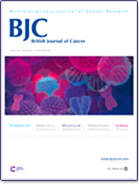 A group of authors in China has lost their 2011 paper in Bioresource Technology on pig poop because the journal detected a whiff of the familiar in a previously published article by other researchers in the same journal (a major tsk tsk and, well, oops).
A group of authors in China has lost their 2011 paper in Bioresource Technology on pig poop because the journal detected a whiff of the familiar in a previously published article by other researchers in the same journal (a major tsk tsk and, well, oops).
The article, “Feasibility of biogas production from anaerobic co-digestion of herbal-extraction residues with swine manure,” came from a team at Nanchang University. Except, well, not really, as we’ll see. According to its abstract:
Continue reading If it smells like pig sh@#, it probably is pig sh@#: A stinky retraction






